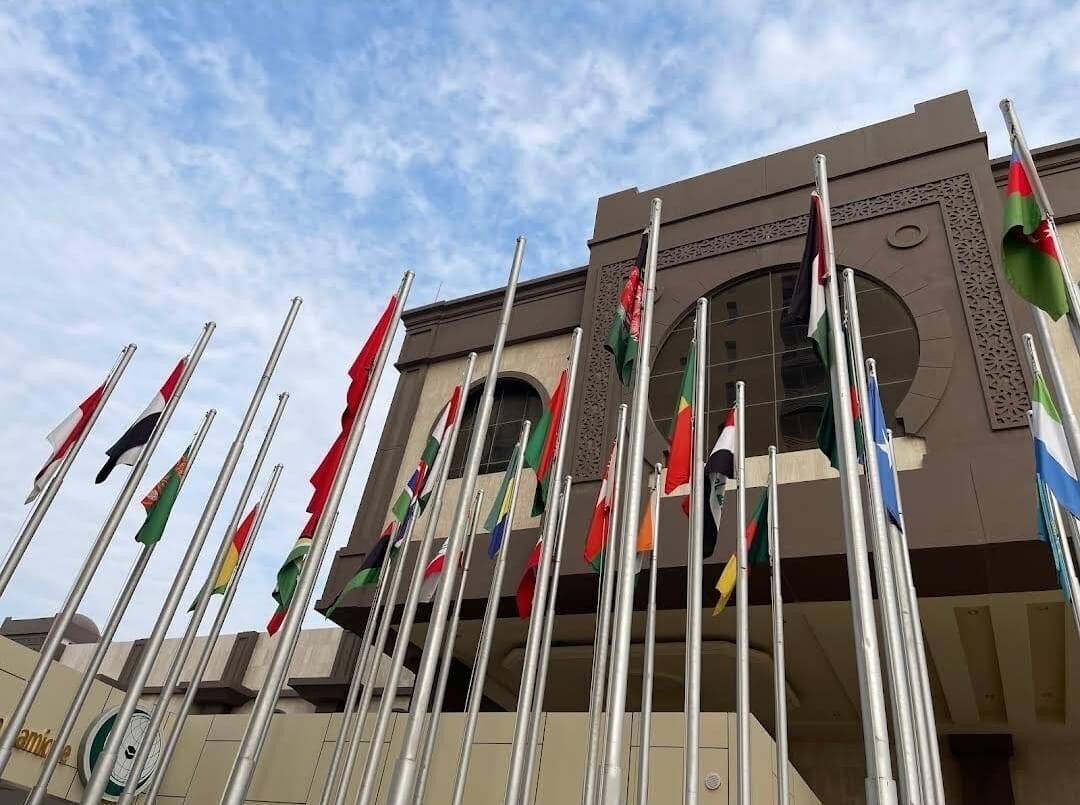
Similar Posts

Zarif’s Davos Interview Shatters Audience Records: A Must-See Summit Moment!
Tehran’s Vice President for Strategic Affairs, Mohammad-Javad Zarif, delivered a highly engaging interview at the World Economic Forum in Davos, which has become the most-watched video of the summit, amassing over 143,000 views. Conducted by CNN’s Fareed Zakaria, the discussion covered Iran’s domestic and foreign policies, national interests, and defense strategies. Zarif, a key figure in the 2015 nuclear deal negotiations, showcased his diplomatic expertise, highlighting Iran’s current policy landscape and his significant influence in international relations. The interview marks a pivotal moment at the WEF, attracting considerable attention and engagement.
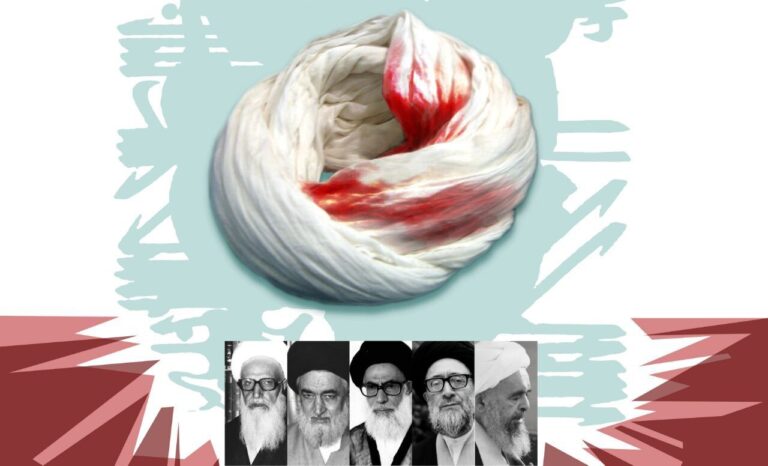
Islamic Scholars Warn: Unmasking the Threat of Counterfeit Islam
The International Day for the Prevention of Violent Extremism, observed on February 12th, emphasizes global cooperation against terrorism and the crucial role of religious leaders in correcting ideological distortions that lead to violence. Extremist groups often misinterpret religious texts, particularly within Islam, to justify their actions. Historical misinterpretations and the aftermath of colonialism have exacerbated this issue, creating fertile ground for extremist ideologies. Promoting an authentic understanding of Islam, characterized by peace and justice, is essential. Religious scholars are key in countering extremism through interfaith dialogue and fostering a culture of peace, aiming for a just and equitable world.
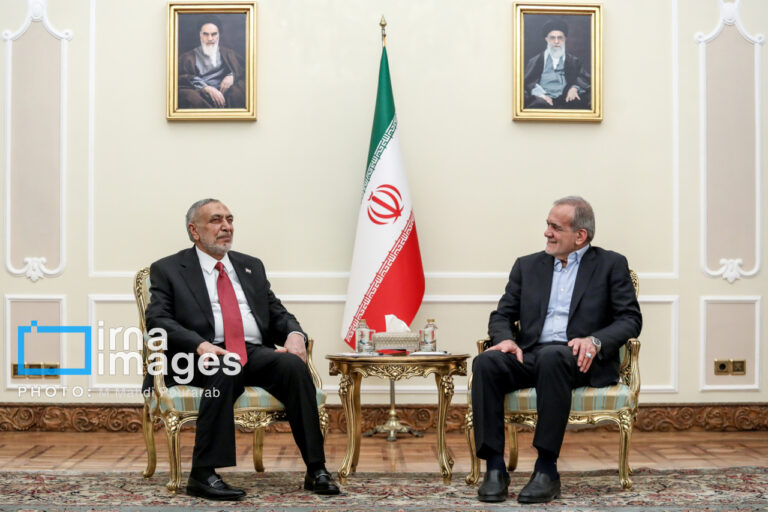
Unity Among Islamic Nations: Pezeshkian Urges Collective Action Against Adversaries’ Schemes
In a recent address, Iran’s President Masoud Pezeshkian emphasized the importance of unity among Islamic nations to counter adversaries and conspiracies. He argued that internal disputes weaken the Islamic Ummah and called for collective efforts in economic development and security. During a meeting with Iraqi Parliament Speaker Mahmoud al-Mashhadani, they discussed enhancing cooperation in trade, science, and border collaboration. Pezeshkian also addressed the situation in Syria, advocating for an inclusive government, and urged support for Palestine and Lebanon amid ongoing crises. The Iraqi speaker supported these views, highlighting a shared commitment to regional stability and the Palestinian cause.
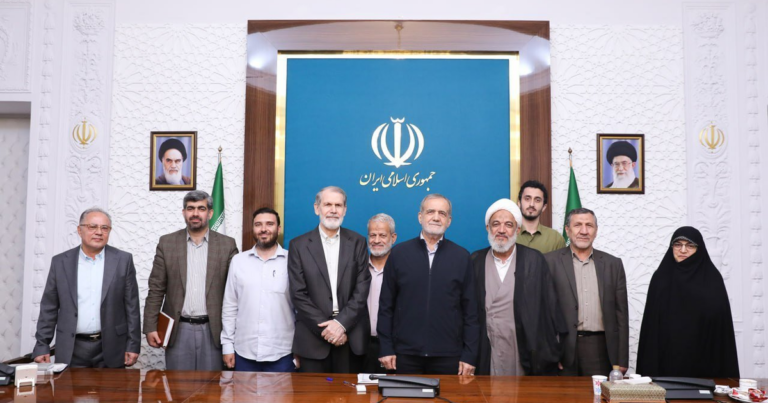
Urgent Pleas in Tehran to Bridge Divides Amid Escalating War and Unrest
The escalating threats between US President Donald Trump and Iranian Supreme Leader Ali Khamenei have intensified fears of conflict, impacting Iran’s domestic politics. Analysts urge radical factions, particularly the ultraconservative Paydari Party, to temper ambitions amid rising tensions, with warnings against destabilizing national security. Former Deputy Intelligence Minister Ali Rabiei and conservative commentator Nasser Imani highlight the risks posed by hardliners. Reports of divisions within the ultraconservative camp suggest a distancing from extremism. Khamenei has expressed concerns over potential unrest, calling for national unity during challenging times, while urging moderation to ensure regime stability.
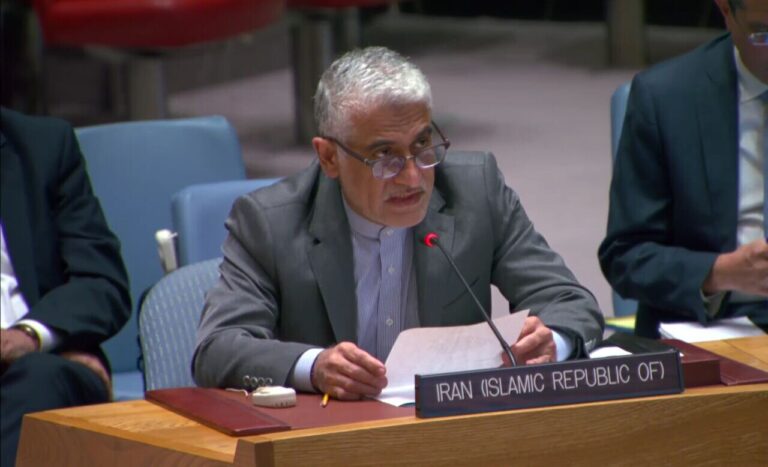
Iran’s UN Envoy Urges for an Inclusive Government in Syria: A Path to Stability
During a recent UN Security Council meeting, Iran’s Ambassador Saeid Iravani emphasized the severe humanitarian and economic crises in Syria, calling for immediate international action. He highlighted the urgent need for infrastructure reconstruction and essential services, hindered by U.S. and EU sanctions that disproportionately affect vulnerable populations. Iravani also raised concerns about the resurgence of terrorism, the rights of all communities, and Israeli violations of Syrian sovereignty. He reaffirmed Iran’s support for Syria’s independence and urged for a government formed through free elections, while rejecting U.S. allegations aimed at distorting the truth. Iran aims to collaborate with the UN for lasting peace in Syria.
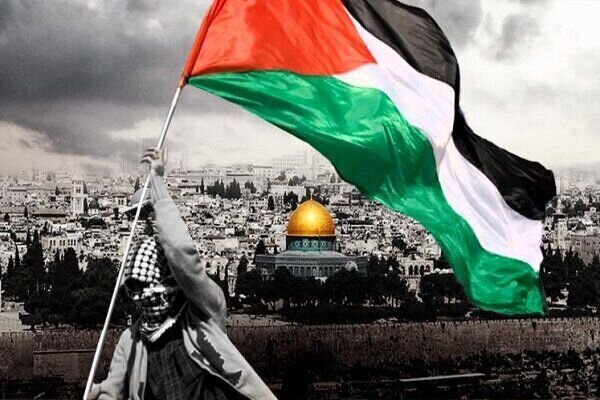
Quds Day: Standing Strong Amidst the Flood Crisis
Imam Khomeini designated the last Friday of Ramadan as International Quds Day to unify the Islamic world against Zionism and support Palestinian liberation. This initiative highlights the importance of Quds, seen as vital for all Muslims, and emphasizes the need for solidarity among oppressed nations. Recent events, like the “Al-Aqsa Flood” operation, show a growing call for Palestinian liberation, despite normalization attempts by regional governments. Khomeini envisioned a “Party of the Oppressed” to unite those fighting imperialism. He warned against the dangers of Israeli normalization, asserting that Quds Day is crucial for rallying Islamic nations against oppression and fostering unity.